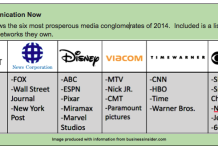
By now, hopefully most folks know their smartphones are smart enough to spy on them by corporations, the government, and even by friends and loved ones. Chances are, if you have a smartphone, or even a cell phone in many cases, you are being tracked and monitored by at least one of the parties mentioned above, whether you are aware of it or not, and whether you like it or not; there’s just no escaping it in this modern society, lest one relies on smoke signals, and with all the new eyes in the sky regarding developing drone technology, one shouldn’t count on that security, either.
GPS tracking on your phone can be used for anything from helping you find your way from point to point on a road trip, leading you back to civilization should you get lost on a hike where reception is still available, to helping you find the best local restaurants for whatever happens to be grabbing at your belly’s attention from one moment to the next. They can even put a location stamp automatically on your photographs and videos. Let’s face it, your cell phone knows where you are all the time, even when you don’t.
Here’s the kicker ? while we all know our phones are capable of such intrusions and conveniences, we don’t often think of them doing so without our consent or awareness. We tend to lean toward considering the conveniences much more than worrying about the intrusions. ?If you’re not breaking the law, what are you worried about?? is a typical statement one hears from folks with such a perspective, and sure, there’s some validity there, but it is the principle of the matter, isn’t it?
Each of us makes a choice in using such devices (if we stop to think about it) to trade our privacy for convenience. And while it is a choice ? one can certainly live smartphone/cell phone free if one chooses ? there is no denying that one is at a major loss socially (even sometimes economically) to not own one, as much more of our society’s fabric becomes integrated into such technologies. It is much more difficult to land a job interview if the employer cannot get in touch with you quickly through a cell or smartphone, having to, instead, wait for you to return home and retrieve any messages that may be left for you, or even more archaic at this point (though still touching and lovely) receive your response letter in the mail. Those living without smartphones are simply somewhat out of the modern loop, for better or worse. It’s just the way it is, like those living without the Internet. In that way, there is pressure and the ?choice? is somewhat lopsided toward a certain decision for all sorts of reasons.
But take, for example, that very feature mentioned above ? GPS tracking. For all the convenience it offers, there is a downside, an intrusive side. Though it may be a necessary intrusion to accommodate the conveniences it offers, it is still intrusive when the convenient services are not in use. Why? Because they never turn off. Sure, one can click a little button on their phone that allegedly ?turns off? GPS tracking, but in the NSA era one has to really wonder (and highly doubt) that it does so. Most likely it simply gives the illusion to the user that it does. Ironically, most likely, clicking that button only hides the intrusion from yourself, the one person who has the right to know that information, and most likely knows it already, naturally, anyway. Do we really believe turning off GPS tracking on our phones hides us from the government, from the NSA, or the corporate vampires looming over our necks at every intersection of our lives? How naive are we willing to be for the sake of convenience?
And with all these smartphones partnering up with Google, Google has taken to tracking us on their behalf, as well. If you have a smartphone linked into your Google account, just take a look here and see for yourself! You can log in and see everywhere your smartphone has been in the last month on a map. Check it out; it’s much more creepy and intrusive than you realize once you see your every movement for the last month outlined on a map for you. One has to wonder, then, who else can or may gain access to such information? Computer networks are far from secure, after all. And sure, there’s a ?delete history? button on the site if you visit, too, but again, do we really believe that erases the tracking history from anyone but ourselves, our own view?
Though the education system is being intentionally disintegrated these days, one hopes we are not yet falling to that level of ignorance. Give us a few years. For now, take a look and consider whether the choices we make, the trades we make, are worth the intrusion.
Let us know your thoughts at the Liberal America Facebook page. Sign up for our free daily newsletter to receive more great stories like this one.
H/T Junkee.com
 Dylan Hock is a writer, professor, videographer and social activist. He earned an MFA in Writing from Naropa University in 2003 and has been an Occupier since Oct., 2011, both nationally and locally in Michigan. He is published in a number of little magazines and has an essay on the muzzling of Ezra Pound included in the anthology Star Power: The Impact Of Branded Celebrity forthcoming by Praeger August, 2014. He is also a contributing writer for Take Ten and Green Action News. Follow him on Google+! Hire him for freelance writing and editing projects through Elance.
Dylan Hock is a writer, professor, videographer and social activist. He earned an MFA in Writing from Naropa University in 2003 and has been an Occupier since Oct., 2011, both nationally and locally in Michigan. He is published in a number of little magazines and has an essay on the muzzling of Ezra Pound included in the anthology Star Power: The Impact Of Branded Celebrity forthcoming by Praeger August, 2014. He is also a contributing writer for Take Ten and Green Action News. Follow him on Google+! Hire him for freelance writing and editing projects through Elance.





